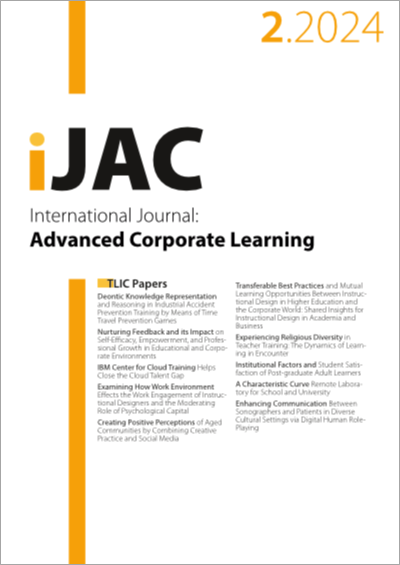Examining How Work Environment Effects the Work Engagement of Instructional Designers and the Moderating Role of Psychological Capital
DOI:
https://doi.org/10.3991/ijac.v17i2.43757Keywords:
work environment, work engagement, psychological capital, instructional designers, quantitativeAbstract
The primary purpose of this study was to determine if and to what extent there is a difference in the overall work engagement of instructional designers who are either working predominantly at home or predominantly in the office in the United States and the secondary purpose of this study was to examine the moderating effect of psychological capital on the predictive relationship between work environment and work engagement. Based on a sample size of 345, the results illustrate that the work engagement scores for those who work predominantly in the office (mean rank = 221.89) were statistically significantly higher than those who work predominantly at home (mean rank = 122.67), U = 23431.50, z = 9.25, p < .001, but did not indicate that the interaction effect between types of work environment and psychological capital on work engagement was statistically significant (B = -0.04, se(HC3) = 0.07, p = 0.58. The results extend research on work engagement by providing evidence that there is a statistically significant difference in mean ranks of work engagement scores between those who worked predominantly at home and those who worked predominantly in the office.
Downloads
Published
How to Cite
Issue
Section
License
Copyright (c) 2024 Rebekah Clarke

This work is licensed under a Creative Commons Attribution 4.0 International License.



